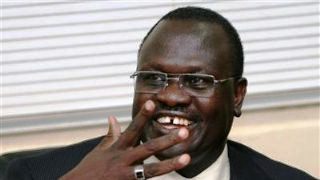S. Sudan: UN urges “inclusive” national reconciliation approach
February 15, 2013 (JUBA) – The United Nations on Friday urged the leadership in South Sudan to adopt an “inclusive” national reconciliation and healing approach and ensure the process is broadly owned by all stakeholders in the country.

“The leadership of the process and the approach that is taken will be decisive for its possibility to succeed. It is essential therefore that the process is inclusive and broadly owned by all stakeholders,” said Johnson at a media briefing in South Sudan’s capital, Juba.
She said the UN Mission in South Sudan (UNMISS) will work closely with all stakeholders to support the national reconciliation process, further urging the country’s leaders to learn from similar experiences in other African countries.
During a meeting chaired by vice-president Riek Machar on 11 January, the Council of Ministers approved a memo on the national reconciliation process in the country, which will be followed by a conference in April.
The process, chaired by Machar, will reportedly focus on victims of cattle rustling, ethnic violence, sectarianism and other conflicts, with an estimated SSP8.2 million earmarked for the nation-wide exercise.
Almost two years since its independence, South Sudan continues to face serious security challenges within its small population, often in the form of tribal conflicts, cattle raids and pockets of rebellions, which it claims are backed by neighbouring Sudan.
Earlier this month, the government embarked on a series of consultative meetings with representatives from civil society, non-government organisations, the media and political parties to gather their views ahead of the campaign on national reconciliation.
In a related development, representatives of various political parties in South Sudan have already expressed readiness to participate in the process of healing for national reconciliation across the country.
Over 20 political parties currently operate in the young nation, having registered when the country was still under Sudan, prior to the July 2011 split.
A fresh registration of all parties in the new state, including the ruling Sudan People’s Liberation Movement (SPLM), is due to take place once the political parties’ council is established by a presidential decree.
All the parties, according to a statement from the vice-president’s office, unanimously endorsed the initiative and vowed to support it to strengthen the unity of the people.
(ST).
